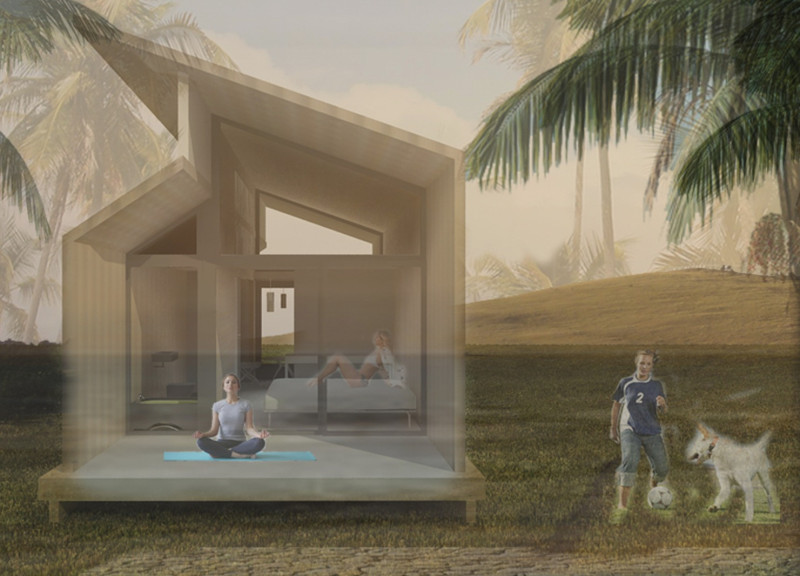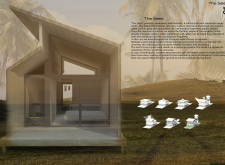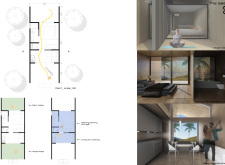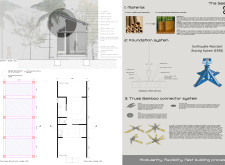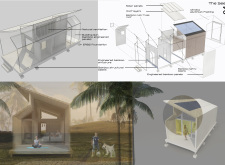5 key facts about this project
“The Seed” is an architectural project designed to provide sustainable and adaptable living spaces in a tropical climate. This compact unit measures approximately 20 square meters and is structured to facilitate efficient use of space while promoting a communal lifestyle. The project emphasizes a modular design, allowing for customization and flexibility according to user needs and site characteristics.
The functional layout includes designated areas for living, cooking, resting, and yoga practice. Each space is tailored to enhance comfort and usability, ensuring that residents can engage in daily activities seamlessly. The design effectively blends aesthetics and practicality, positioned within a framework that supports environmental considerations.
Modular Design and Adaptability
A significant differentiating factor of “The Seed” is its modular approach, which allows for the assembly of individual components based on user preference or site conditions. This versatility not only supports diverse lifestyles but also encourages easier relocation and adaptation over time.
The innovative use of materials is another important aspect of the project. Engineered bamboo serves as the primary structural element, combining sustainability with strength, while the bamboo truss roof system enables effective rainwater drainage and natural ventilation. The Earthquake Resistant Bracing System (ERBS) reinforces the structure’s ability to withstand seismic activity, providing safety in regions prone to natural disasters.
Sustainability and Resilience
Sustainability stands at the core of this project. Bamboo, a rapidly renewable resource, is utilized extensively, showcasing a commitment to environmentally-friendly building practices. This is complemented by the integration of solar panels to harness renewable energy, further minimizing the ecological footprint.
Furthermore, the design incorporates flood-resistant features by elevating the living spaces above potential flooding zones. The overarching strategy promotes resilience and longevity, safeguarding inhabitants against climate-related challenges.
For more detailed insights into the architectural plans, sections, and unique design approaches of “The Seed,” explore the project presentation. A closer look at the architectural designs and ideas can provide a comprehensive understanding of how this project addresses contemporary housing needs while adhering to principles of sustainability and adaptability.


